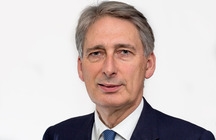Chancellor Philip Hammond says he will introduce “a tough new financial penalty” from July on financial professionals who “enable” a tax avoidance scheme that is later challenged and defeated by HMRC.
The penalty for those who enable tax avoidance schemes later found to be unlawful will be either 100 % per cent of the tax evaded, or £3,000, whichever is higher. The move could mean any professional financial adviser who “enables” an unlawful tax avoidance scheme such as an accountant, wealth manager or IFA being hit. The penalty is expected to raise £115m in revenue by 2022.
Mr Hammond said the move is part of a series of tax abuse crackdowns, including on QROPs schemes, which will safeguard £820m of taxpayers money.
He confirmed that he would go ahead with measures proposed in his Autumn Statement and tackle promoters of avoidance schemes who seek to circumvent the Promoters of Tax Avoidance Schemes (POTAS) legislation through the use of complex tax schemes devised to avoid legislation.
The Treasury says that the measure will ensure that promoters of tax avoidance schemes cannot circumvent the POTAS regime by re-organising their business so that they either share control of a promoting business or put a person or persons between themselves and the promoting business.
The Treasury says: “The changes to this legislation deter the use of avoidance schemes through influencing the behaviour of promoters, their intermediaries and clients.”
Changes to the POTAS legislation were introduced in Finance Act (FA) 2015 to ensure promoters cannot use “associated and successor entities” to circumvent legislation. The POTAs changes will take on and after today (8 March 2017.)
Legislation will be introduced in the Finance Bill 2017 to amend the control definitions in paragraph 13A of Schedule 34 to FA 2014. These amendments introduce the term ‘significant influence’ to ensure promoters cannot reorganise their business so that they put a person or persons between themselves and the promoting business.
The government will remove the defence of having relied on non-independent advice as taking ‘reasonable care’ when considering penalties for a person or business that uses such arrangements.
Treasury says the new regime reflects an extensive consultation with stakeholders.

